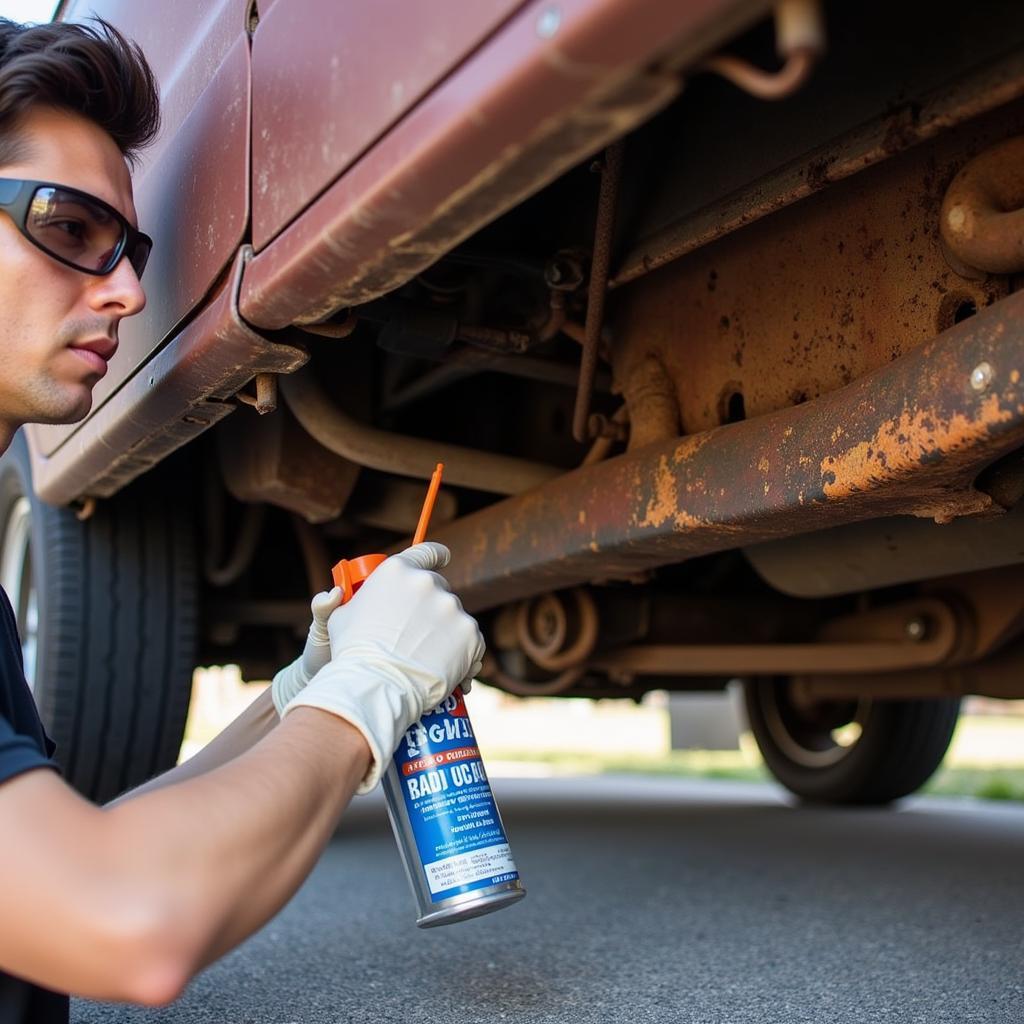Rust is a common problem for car owners, especially those living in coastal areas or regions with harsh winters. It not only detracts from the appearance of your vehicle but can also compromise its structural integrity. Finding the best rust remover for cars is essential for maintaining your vehicle’s value and longevity. This guide will explore the various types of rust removers, their effectiveness, and how to use them safely and efficiently.
Choosing the right rust remover can be overwhelming given the numerous products available on the market. From chemical removers to more natural solutions, understanding the pros and cons of each type will help you make an informed decision. We’ll also cover preventive measures to help you avoid future rust issues. After reading this guide, you will be well-equipped to tackle rust on your car and keep it looking its best.
Types of Rust Removers for Cars
Several types of rust removers cater to different needs and levels of rust. Choosing the correct type depends on the severity of the rust and the material you are working with.
Acid-Based Rust Removers
Acid-based rust removers are among the most potent options. They utilize strong acids, such as phosphoric or oxalic acid, to dissolve rust quickly. These are effective for heavy rust but require careful handling due to their corrosive nature.
Rust Converters
Rust converters, unlike removers, don’t remove the rust but transform it into a stable compound. They react with iron oxide, converting it into iron phosphate, a black, paintable surface. This method is suitable for light to moderate rust.
Rust Dissolvers
Rust dissolvers work by chemically breaking down the rust, allowing it to be wiped or rinsed away. These are generally less aggressive than acid-based removers and are suitable for various metal surfaces.
Abrasive Rust Removers
Abrasive rust removers rely on physical action to remove rust. This can include sandpaper, wire brushes, or grinding wheels. They are effective for removing loose rust and preparing surfaces for treatment with other rust removers.
Choosing the Right Rust Remover for Your Car
Choosing the right rust remover depends on several factors, including the severity of the rust, the type of metal, and your budget. For light surface rust, a rust converter or dissolver might be sufficient. For more severe rust, an acid-based remover might be necessary. Always consider the safety precautions associated with each type of remover.
Assessing the Extent of the Rust Damage
Before choosing a rust remover, carefully assess the extent of the rust on your car. Surface rust can often be treated with less aggressive methods, while deeper rust might require more potent solutions. Consider factors such as the location of the rust and the type of metal affected.
Considering the Type of Metal
Different metals react differently to various rust removers. Ensure the rust remover you choose is compatible with the metal on your car to avoid further damage. Always test the product on a small, inconspicuous area before applying it to the affected area.
How to Use a Rust Remover Safely and Effectively
Using a rust remover safely and effectively involves following the manufacturer’s instructions carefully and taking appropriate safety precautions.
Safety Precautions
Always wear protective gear, including gloves, eye protection, and a respirator when working with chemical rust removers. Work in a well-ventilated area to avoid inhaling fumes. Dispose of used rust remover properly according to local regulations. Check if your local area has any rainstorm car wash options that utilize rainwater harvesting to minimize environmental impact when cleaning your car after rust removal.
Application Techniques
The application method varies depending on the type of rust remover. Some removers require direct application, while others may need to be diluted or mixed before use. Follow the manufacturer’s instructions carefully for optimal results. Remember, a scratch repair car service can help address any minor scratches that might occur during the rust removal process.
Preventing Future Rust
Preventing rust is always better than treating it. Regularly washing and waxing your car can help protect the paint and prevent rust from forming. Keeping your car clean, especially during winter, can minimize the exposure to salt and other corrosive materials. Consider using a bug remover for cars to further protect your car’s finish.
Conclusion
Rust removal for cars is crucial for maintaining their appearance and structural integrity. Choosing the right rust remover and using it correctly can effectively address rust issues. Remember to consider the severity of the rust and the type of metal before selecting a rust remover. Regular maintenance and preventative measures can significantly reduce the risk of future rust problems. You can also explore options like a car scratch remover to maintain your car’s pristine condition. Don’t hesitate to seek professional help from a nearby hand wash car washes near me for a thorough cleaning after the rust removal process.
FAQ
- What is the best rust remover for cars? The best rust remover depends on the specific rust situation and the type of metal.
- How do I remove surface rust from my car? Surface rust can often be removed with a rust converter or dissolver.
- Is it safe to use rust remover on my car? Yes, but always follow safety precautions and the manufacturer’s instructions.
- How can I prevent rust on my car? Regular washing, waxing, and keeping your car clean can help prevent rust.
- Can I remove rust myself, or should I hire a professional? Minor rust can often be removed DIY, but severe rust might require professional help.
- What are the signs of rust damage on a car? Visible rust, bubbling paint, and weakened metal are signs of rust damage.
- How often should I treat my car for rust prevention? Regular washing and waxing are essential preventative measures.
If you need further assistance, please contact us via WhatsApp: +1(641)206-8880, Email: cardiagtechworkshop@gmail.com, or visit us at 276 Reock St, City of Orange, NJ 07050, United States. We have a 24/7 customer service team available to assist you.

